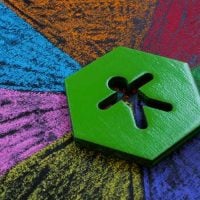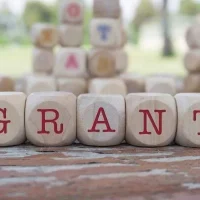Deadline: 30-Mar-22
European Commission is calling for proposals for Digital Tools to Support the Engineering of a Circular Economy.
Scope
- The focus is on developing new concepts, methods, and digital tools to support further engineering of the industrial processes for recycling, re-manufacturing, refurbishing, and reuse of manufactured products and components. New solutions will enable remanufacturing and high-quality recycling by digitalisation of product and component information throughout the whole product lifecycle, in line with the 2020 Circular Economy Action Plan.
- Another challenge that falls within this scope is the human dimension. The support tools need to work with the user, and training, knowledge transfer, cognitive interfaces, as well as acceptance and uptake will be vital in the solutions proposed.
- Proposals should cover all of the following aspects:
- Development of innovative concepts, methods, and tools that track and trace the status of relevant manufactured products and components, such as electronic systems and components as well as machine tools, and increase transparency and accountability for these along their lifecycle. Where appropriate, proposals need to be able to link up with manufacturing industrial data spaces platforms, so that circular economy data can be shared with a larger set of organisations;
- Inclusion and handling of real-time production data in analysis software and tools, notably for decision making and control, as well as knowledge management;
- Demonstration of the support tools in at least two different realistic production environments with a clear target of improving quality and sustainability with significant economic value. If applicable, legal obstacles to implementation of the proposed solutions should be identified.
Funding Information
The check will normally be done for the coordinator if the requested grant amount is equal to or greater than EUR 500 000, except for:
- public bodies (entities established as a public body under national law, including local, regional or national authorities) or international organisations; and
- cases where the individual requested grant amount is not more than EUR 60 000 (lowvalue grant).
Expected Outcomes
Projects are expected to contribute to the following outcomes:
- Provide a range of support solutions and innovative digital tools for engineers, technicians and operators on the factory floor, in order to build agile, sustainable and responsive production environment and supply chains, with specific focus on areas such as material saving, repair, refurbishing, re-manufacturing, recycling, and reuse of products and components;
- Reduction of the dependency from imported raw materials or harmful materials for the European manufacturing sector (e.g. by material consumption reduction, material substitution and use of secondary raw materials);
- Define specifications and standards for data, products, and/or business processes, that can be agreed and commonly used by many industrial actors and across different industry sectors; and facilitate industry agreements on circularity and sustainability through increased data exchange among value chain actors and enable the development of new types of businesses;
- Reduce the skills and knowledge gap for the actors involved.
Eligibility Criteria
To be eligible for funding, applicants must be established in one of the eligible countries, i.e.:
- the Member States of the European Union, including their outermost regions;
- the Overseas Countries and Territories (OCTs) linked to the Member States;
- eligible non-EU countries:
- countries associated to Horizon Europe
- low- and middle-income countries
For more information, visit European Commission.
For more information, visit https://bit.ly/30tWaIB





![Call for Applications: “Voices in Motion” Program [Sri Lanka] - fundsforNGOs Call for Applications: “Voices in Motion” Program [Sri Lanka]](https://www2.fundsforngos.org/wp-content/uploads/2023/04/dance-200x200.jpg)



































